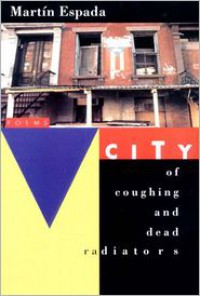Songs for the Open Road: Poems of Travel and Adventure (Dover Thrift Editions)
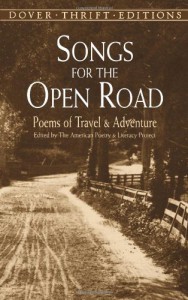 This is the third of four Dover poetry anthologies that I am reviewing. As is the case with the others, this is an inexpensive, easily portable volume.
This is the third of four Dover poetry anthologies that I am reviewing. As is the case with the others, this is an inexpensive, easily portable volume.There are 99 poems by 62 different poets. Includes 'A' Listers such as Browning, Cummings, Dickinson, Eliot, Frost, Longfellow, Nash, Poe, Sandburg, Whitman, and Yeats. Though the narrow focus of the subject matter also allows for inclusion of lesser known poets who might not be recognized otherwise. The pieces are organized into three sections: Songs For the Open Road; Sea, Rail, and Sky; and Home, Rest, and Final Voyages. There is an index of poets' names, titles, and first lines.
I have selected ten poems that deserve special mention:
"The Sacred" - Stephen Dunn
"Get Up, Blues" - James Emanuel
"The Road Not Taken" - Robert Frost
"Stopping By Woods On A Snowy Evening" - Frost
"The New Colossus" - Emma Lazarus
"Sea-Fever" - John Masefield
"Exiled" - Edna St. Vincent Millay
"Riding On A Railroad Train" - Ogden Nash
"Night Journey" - Theodore Roethke
"America For Me" - Henry Van Dyke
The Canoe
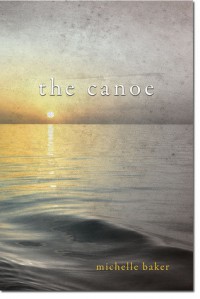 I received a promotional copy of this book through the First Reads program.
I received a promotional copy of this book through the First Reads program. I am not a fan of books that can be used as murder weapons. So when I saw this one listed at a harmless 118 pages, I could not help but be interested. In actuality, it is even shorter. Perhaps more novella than novel.
It is different. Certainly unusual, if not quite unique. Baker alternates chapters between a male MC and a female MC, as Andrew Davies did so well in B. Monkey. (Though in this one they never meet, while in that one they are lovers.) Short chapters, often only a couple pages long. A glimpse here, a glance there, not revealing too much. Not wasting space on the page with filler and fluff. Her writing style is smooth, but slow-paced. So I wouldn't call it a page-turner, but it wasn't a chore to read. The proofer did a good job, which is often not the case with small press publications.
However, I feel like I have more questions than answers. I am wondering about certain choices Baker made.
Note: I did not notice a political agenda in the story. So her connection with the Huffington Post was not an issue.
101 Great American Poems
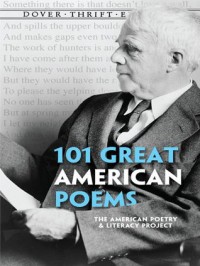 This is the second of four poetry anthologies from Dover that I'm reading / reviewing. As can be expected from that publisher, it's an inexpensive, easily portable book.
This is the second of four poetry anthologies from Dover that I'm reading / reviewing. As can be expected from that publisher, it's an inexpensive, easily portable book. The 101 poems were written by 39 different poets, born between 1612 and 1907. Three were born before 1800, and three were born after 1900. So 33 were born in the 19th century. Each poet's section has a short blurb about the poet. The usual suspects are represented: Longfellow, Poe, Whitman, Dickinson, Frost, Sandburg, Eliot, Cummings, etc. There's also a generous sampling from the Harlem Renaissance: James Weldon Johnson, Claude McKay, Jean Toomer, Langston Hughes, and Countee Cullen.
I've selected ten pieces to spotlight here. I could have easily selected twice this amount.
"Paul Revere's Ride" - Henry Wadsworth Longfellow
"The Raven" - Edgar Allan Poe
"Casey At the Bat" - Ernest Lawrence Thayer
"The Road Not Taken" - Robert Frost
"Stopping By Woods On A Snowy Evening" - Frost
"Chicago" - Carl Sandburg
"Thirteen Ways of Looking At A Blackbird" - Wallace Stevens
"The Love Song of J. Alfred Prufrock" - T.S. Eliot
"Dream Deferred (Harlem)" - Langston Hughes
"The Unknown Citizen" - W.H. Auden
Great Short Poems
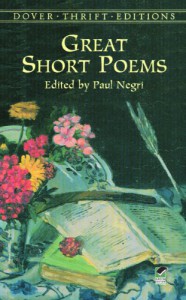 An inexpensive, no frills, easily portable book. A lot of the giants of poetry are represented here: Shakespeare, Browning, Whitman, Dickinson, Yeats, Frost, Sandburg, Eliot, etc. There are pieces from writers who are more known for other genres: Emily Bronte, Lewis Carroll, Thomas Hardy, Robert Louis Stevenson, Oscar Wilde, and Stephen Crane. There are also poems from lesser known writers.
An inexpensive, no frills, easily portable book. A lot of the giants of poetry are represented here: Shakespeare, Browning, Whitman, Dickinson, Yeats, Frost, Sandburg, Eliot, etc. There are pieces from writers who are more known for other genres: Emily Bronte, Lewis Carroll, Thomas Hardy, Robert Louis Stevenson, Oscar Wilde, and Stephen Crane. There are also poems from lesser known writers.So it's a good collection for reading poetry one might not encounter otherwise. It's a good collection for bringing together some of the greats in one volume, so you don't have to go seeking out each one individually.
What it is not is an anthology of modern poetry. The poems are arranged chronologically by poet's birth year, and the most recent is Dylan Thomas, who was born in 1914. Eight of the 83 poets represented were born before 1600; only two were born after 1900 (Thomas and Langston Hughes). So when other reviewers complain about the anthology being dominated by dead white guys, they're correct, but they're missing the reason. Society was dominated by white guys for much of the time period covered in this book. That isn't Dover's or Paul Negri's fault. I won't bore you with the statistics, but as the anthology progresses through the years, women and black men are represented at a substantially higher rate.
There are 150 poems here, and not much filler. But these ten stood out for me:
"A Reasonable Affliction" - Matthew Prior
"Abou Ben Adhem" - Leigh Hunt
"The New Colossus" - Emma Lazarus
"Solitude" - Ella Wheeler Wilcox
"The Purple Cow" - Gelett Burgess
"Stopping By Woods On A Snowy Evening" - Robert Frost
"The Road Not Taken" - Frost
"Sea Fever" - John Masefield
"Trees" - Joyce Kilmer
"Do Not Go Gentle Into That Good Night" - Dylan Thomas
The Complete Poetry
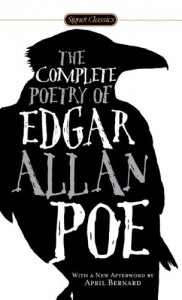 Poems written between 1827 and 1849, because it was difficult to write after he died.
Poems written between 1827 and 1849, because it was difficult to write after he died. Introduction by Jay Parini, which is mostly a brief bio of Poe.
Afterword by April Bernard.
Poe worked with various rhyme schemes. He liked to employ repetition and adjusted (or tweaked) repetition. He had an ear for sound and rhythm.
However, much of his writing seems antiquated. Bernard mentions that he wasn't just a product of his times (early 19th century), but he had an infatuation with the Old World. In his weaker pieces, he was prone to long, rambling, confusing sentences.
The poems that stand out were all written in the last few years of his life: "The Raven" (1845), "Annabel Lee" (1849), "For Annie" (1849), "The Bells" (1849).
Planet News
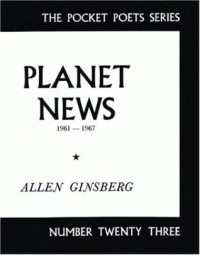 138 pages of Ginsberg the traveler, Ginsberg the political malcontent, Ginsberg the drug-induced rambler. The two longest pieces are "Television Was A Baby Crawling Toward That Deathchamber" (18 pages) and "Wichita Vortex Sutra" (23 pages). 39 other poems.
138 pages of Ginsberg the traveler, Ginsberg the political malcontent, Ginsberg the drug-induced rambler. The two longest pieces are "Television Was A Baby Crawling Toward That Deathchamber" (18 pages) and "Wichita Vortex Sutra" (23 pages). 39 other poems. There is much here that left me unimpressed. But there are gems as well. "After Yeats", "Café In Warsaw", "First Party At Ken Kesey's With Hell's Angels", and to a lesser extent, "Kral Majales" are all notable. Each of these poems represents AG at his more accessible, more focused. In the first and the third, he boils it down to just a few efficient lines.
I'll leave you with a few lines:
Art is just a shadow, like cows or tea - "Galilee Shore"
Today is slowly ending - I will step back into it and disappear. - "Today"
It all came true in the sunset on a deserted street - "The Moments Return"
Kaddish and Other Poems: 50th Anniversary Edition
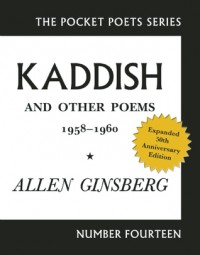 It really comes down to your opinion of the title piece. If you think it's great, the other poems won't matter. But if you don't like it, the other poems won't make up for it.
It really comes down to your opinion of the title piece. If you think it's great, the other poems won't matter. But if you don't like it, the other poems won't make up for it.Of the 124 pages, 30 are "Kaddish' and another 30 are the two essays about it. "Laughing Gas" checks in at 17 pages. The other 47 pages are comprised of 14 shorter poems. Both essays are new to the 50th anniversary edition. Or were new when it was first published. Bill Morgan sheds light on Naomi's life before moving on to the poem itself.
"Kaddish" is a depressing piece. Gut-wrenching, heart-breaking, etc. AG does a good job of depicting his mother's paranoia. His approach is as blunt / bold as it was in "Howl".
"To Lindsay" is the 'other' piece that stood out to me. It's an efficient ten lines.
Anyway, here are some lines that popped out at me:
Franco has murdered Lorca the fairy son of Whitman / just as Mayakovsky committed suicide to avoid Russia - "Death to Van Gogh's Ear!"
Somebody will invent / a Buchenwald next door - "Laughing Gas"
I'm a spy / in Bloomfield on a park bench / - frightened by buses - - "Laughing Gas"
This, from "How Kaddish Happened":
In the country getting up with the cows and birds hath Blakean charm, in the megalopolis the same nature's hour is a science-fiction hell vision, even if you're a milkman. Phantom factories, unpopulated streets out of Poe, familiar nightclubs bookstores groceries dead.
I'll leave you with this:
I write best when I cry. - Ginsberg
A Shot of Brandi
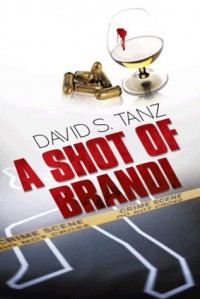 I received a promotional copy through the First Reads program.
I received a promotional copy through the First Reads program.It went a lot better once I turned off my inner critic and just enjoyed the ride. However, there were various red flags that left me wondering what the editor was doing. As a part-time beta reader (for free), it's disappointing to see an author let down like this.
There's enough going on plot-wise to keep it from being too boring. I enjoyed the romance between Davis and Ashley, and would not have minded seeing more of an emphasis on it. Gando is a decent supporting character. The ending could certainly have been worse.
However, I never saw Rick as likeable. The alternating viewpoints could have worked, as it does in B. Monkey. But Tanz switches back and forth too quickly; instead of alternating chapters, he often alternates after only a page or two, or even on the same page. The Brandi angle came off as forced.
A previous reviewer mentioned "too much almost purple prose". I strongly disagree with this analysis. It's a 200-plus page novel with one sex scene. I'm baffled and annoyed by people who gladly read about murder but complain the moment a bra gets unhooked.
Note: The Marlins changed their name in November 2011, which seems to be after the original publication of this book. (And after the events of the novel as well.)
Gasoline & The Vestal Lady on Brattle
 The back cover features praise from Ginsberg, Burroughs, and Kerouac. Ginsberg wrote the Introduction, which concludes thusly: "He's probably the greatest poet in America, and he's starving in Europe."
The back cover features praise from Ginsberg, Burroughs, and Kerouac. Ginsberg wrote the Introduction, which concludes thusly: "He's probably the greatest poet in America, and he's starving in Europe." "D. Scarlatti" and "Birthplace Revisited" stand out from the first section (Gasoline).
In the Mexican zoo / they have ordinary / American cows. - "Mexican Impressions"
The Introduction to the second section, The Vestal Lady On Brattle, was written by P.L.B. I have no idea who this person was. An internet search was fruitless.
"Greenwich Village Suicide" and "The Horse Was Milked" stand out from this section. Also, the ending of "Cambridge, First Impressions": "It is a great feeling to know / that from a window / I can go to books to cans of beer to past loves. / And from these gather enough dream / to sneak out a back door."
Scattered Poems
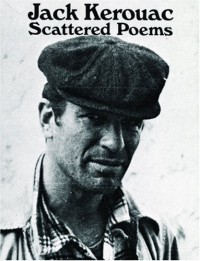 Notable for the inclusions of "Fie My Fum" (with Ginsberg) and both versions of "Pull My Daisy" (with Ginsberg and Cassady) which it spawned.
Notable for the inclusions of "Fie My Fum" (with Ginsberg) and both versions of "Pull My Daisy" (with Ginsberg and Cassady) which it spawned. "Rimbaud" checks in at eight pages and "A Curse At the Devil" at six pages. Though they're not long enough to dominate the collection.
There are samplings from San Francisco Blues. The collection concludes with a series of Western Haikus. To quote Kerouac:
A "Western Haiku" need not concern itself with the seventeen syllables since Western languages cannot adapt themselves to the fluid syllabillic Japanese. I propose that the "Western Haiku" simply say a lot in three short lines in any Western language.
I'd give the collection 3 1/2 stars if I could. There are a few pieces that are too difficult to understand or are just meh. So it's not his best, but it's not bad.
"suspected of being a poet"
"sadder then time, than dream, sadder than water"
"Jazz killed itself"
"So we'll deal in the night / in the market of words"
Pictures of the Gone World
 Tempted to give it a 3 1/2, but I have a history of being harsh on poetry. So I'll call it a soft 4.
Tempted to give it a 3 1/2, but I have a history of being harsh on poetry. So I'll call it a soft 4."A poem is a mirror walking down a strange street."
"Silence hung like a lost idea."
"And each poem a picture at an exhibition upon a blank wall made of concrete chaos."
That last one makes me wonder if he was referencing Mussorgsky.
Now We Will Be Happy
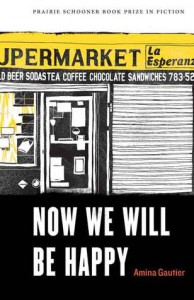 I received a promotional copy of this book through the First Reads program.
I received a promotional copy of this book through the First Reads program.As a previous reviewer mentioned, Gautier's writing is smooth. She has the necessary skills. Unfortunately, her decisions often fell flat with me - the plots she chose to pursue, the character traits she chose to ascribe, etc.
It's at least as much about family problems as it is about bicultural issues. While this might make the characters more relatable in a way, it also makes them less interesting. There's a certain amount of redundancy, with story after story being about family problems. More variety would have helped. Often, it didn't even matter that they were Puerto Rican. That would have been fine, except I signed up to read a book about Puerto Ricans.
The first story, "Aguanile", is easily my favorite in the collection. "Now We Will Be Happy", "How To Make Flan", and "The Last Hurricane" are also decent stories.
Beneath the Neon Egg: A Novel
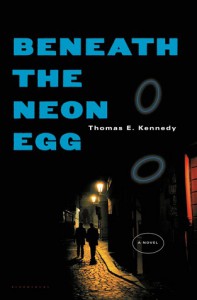 Soft 4.
Soft 4.I received a promotional copy through the First Reads program. So a tip of the hat to Megan Ernst and Bloomsbury Publishing.
Kennedy's reverence for Coltrane's music is reminiscent of Bill Moody's Looking For Chet Baker. Patrick Bluett is a flawed, though likeable main character. I liked reading about Copenhagen, as it's not a setting I see often in the books I read. The pace was casual - not a page turner, but not a chore either.
There were two drawbacks which almost got it a 3 1/2 star rating. First, the back cover blurb is really misleading. So I spent a big chunk of the novel waiting for what I expected to happen. Then it didn't really happen. Second, it kind of seemed like a novel that didn't know what it wanted to be. There are various elements thrown together in the same story.
Success: Stories
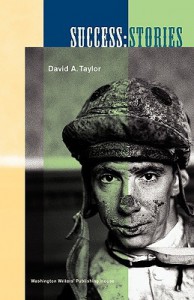 I received a promotional copy through the First Reads program.
I received a promotional copy through the First Reads program.I'm torn on what to rate this. Probably 3 1/2 or 4.
There's plenty of variety here, with stories set in Thailand, Sri Lanka, Scotland, Texas, Massachusetts, Maryland, etc. Characters include government functionaries, clinical trial drug testers, Muslim villagers, and a deaf locksmith.
As others have mentioned, Taylor is skilled at dropping a reader into his stories. His characters seem real; their situations believable for the most part. There are stories here that I expect to linger with me: "Pelagro" and "Electrolysis", for example. Others, such as "May Day", missed the mark. The weaker stories are not necessarily bad stories, or poorly written, but they lack fulfillment. I would be left with an empty, unsatisfied feeling when finishing these pieces.
The Lords and the New Creatures
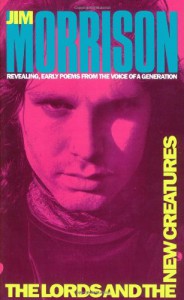 Jim Morrison is famous as the Doors' lead vocalist and a member of the 27 Club. But he was also a talented song writer with a strong intellect. So whenever I read his poetry I wonder why it isn't better.
Jim Morrison is famous as the Doors' lead vocalist and a member of the 27 Club. But he was also a talented song writer with a strong intellect. So whenever I read his poetry I wonder why it isn't better.The Lords is the superior of the two sections. It's more coherent, more accessible. He drops a lot of knowledge about cinema / theater. (Morrison met Doors keyboard player Ray Manzarek while they were attending UCLA's film school.)
The New Creatures, as alluded to above, is less accessible and less coherent then the first section. Morrison often resorts to just stringing words together; no attempt at proper grammar or sentence structure.
So 3 1/2 for the first section and 2 for the second section. Rounded up to 3.





